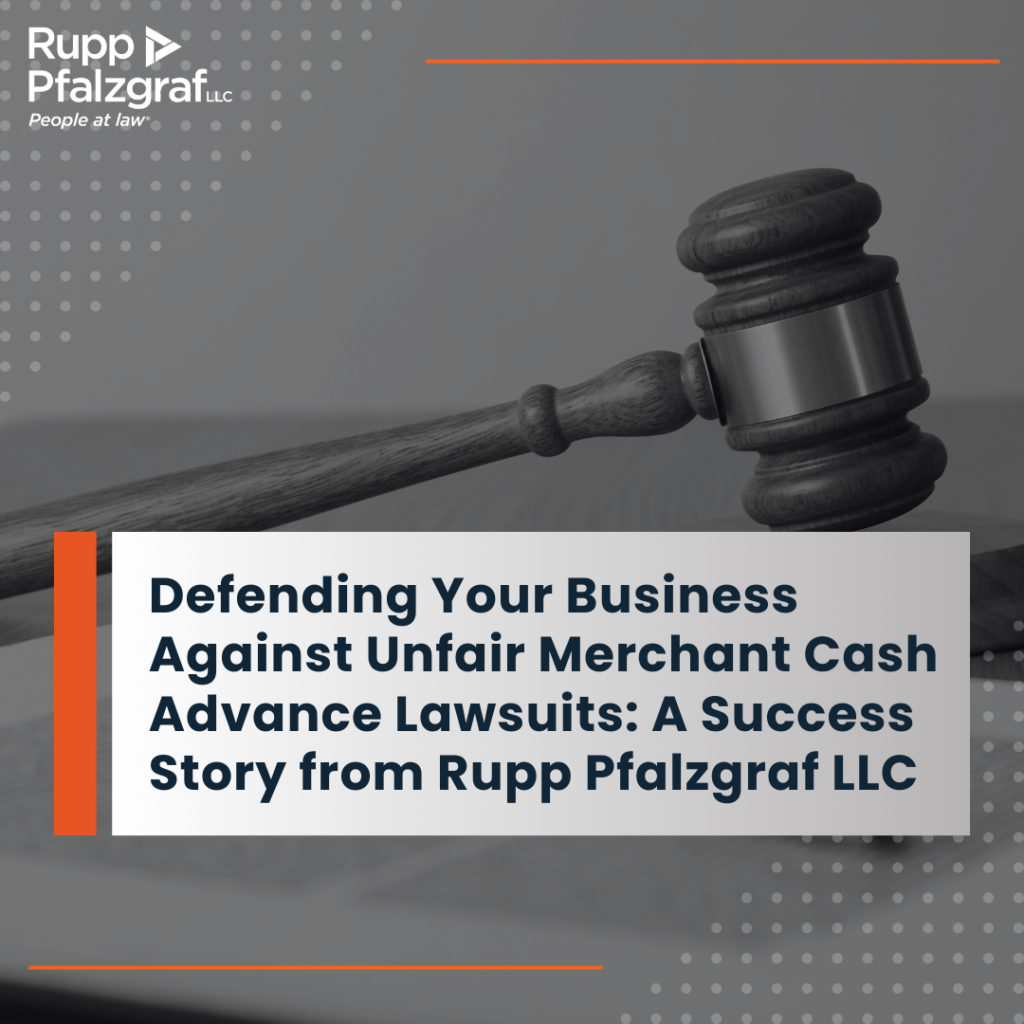
If you’re a small business owner who signed a Merchant Cash Advance (MCA) agreement and are now being sued for defaulting on it, you’re not alone – and you have options.
Rupp Pfalzgraf LLC recently defended a business in a similar situation, and the results show that these agreements aren’t always as ironclad as the funders would like you to believe.
The Case: Fighting Back Against Unfair MCA Practices
Our client, a small business owner, entered into an MCA agreement with a funding company. The deal was supposed to be simple: the funding company would withdraw 14% of the business’s weekly sales revenue until the advance was repaid. If business slowed down, payments would adjust accordingly.
But that’s not what happened. Instead:
- The funder ignored the 14% sales-based repayment and took fixed amounts from the business’s account—well beyond what was agreed.
- When the business tried to request lower payments (as the agreement allowed), the funder refused.
- The funder’s aggressive withdrawals drained the business’s account, causing payments to bounce.
The funder then sued the business for breach of contract and went after the owner personally, relying on a personal guarantee signed as part of the deal.
How Rupp Pfalzgraf LLC Fought Back
We argued that the MCA agreement wasn’t a true MCA agreement at all. Instead, we showed that the funder’s actions transformed it into what was effectively an illegal, high-interest loan. Here’s how:
- Refusal to Adjust Payments: The funder’s actions made the so-called “flexible repayment” terms meaningless.
- Fixed Withdrawals: By demanding set amounts every week, the funder avoided taking on the risk of nonpayment—a key feature of legitimate MCA agreements.
- Setting Up for Default: The funder’s behavior appeared designed to push the business into financial trouble and force a default, allowing them to enforce the personal guarantee.
The court agreed that there were serious issues with the agreement, including whether:
- The agreement was enforceable as an MCA or void as an illegal loan.
- The funder’s actions excused any alleged breach by the business.
- The personal guarantee was enforceable in this situation.
Why This Matters for You
This case shows that you don’t have to accept the funder’s terms at face value. Many MCA agreements are riddled with unfair provisions and predatory practices. Courts are starting to recognize this, and with the right defense, you can fight back.
Rupp Pfalzgraf LLC Can Help
If you’ve defaulted on an MCA agreement and are being sued, contact us today. Our experienced team has a proven track record of defending businesses against these funders and exposing the flaws in their agreements.
Contact James Graber, Esq. at 716-854-3400 or graber@rupppfalzgraf.com to schedule a free consultation. Let us help you protect your business and your future.

